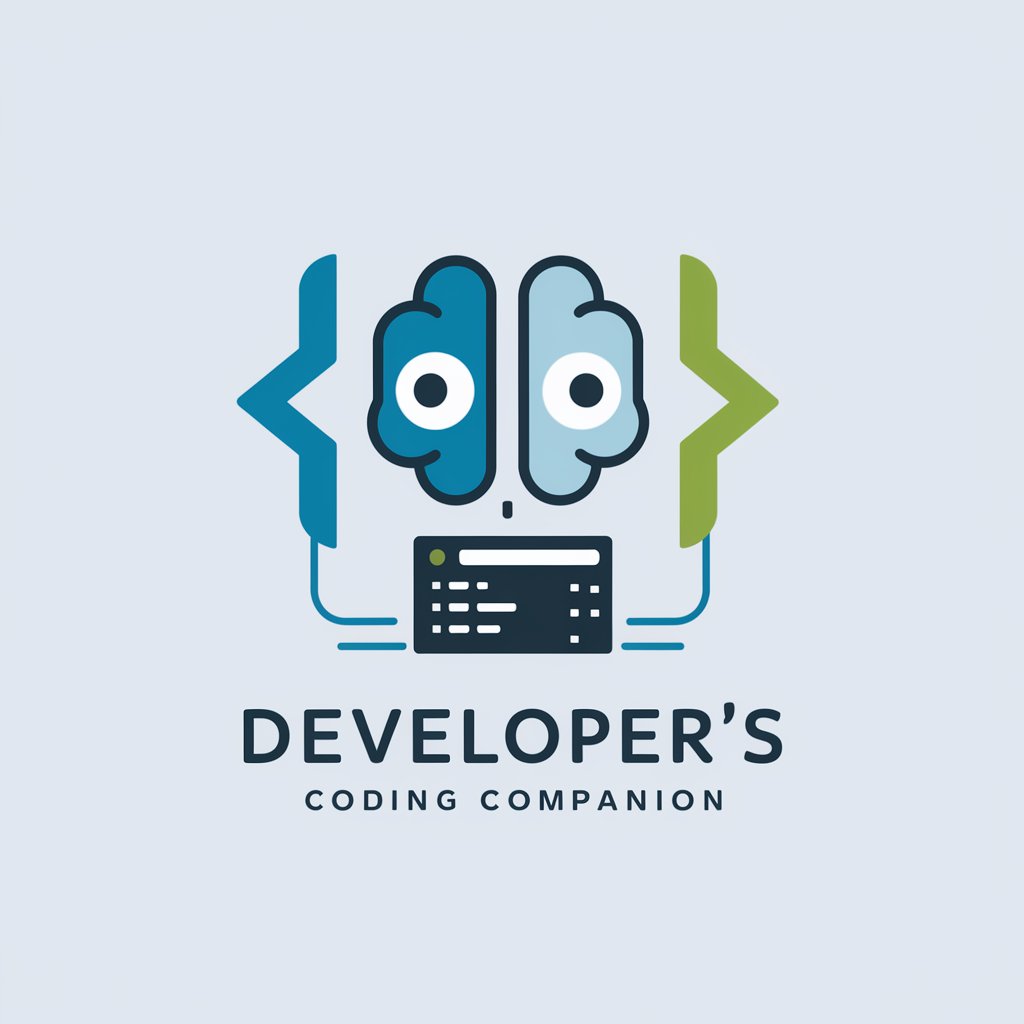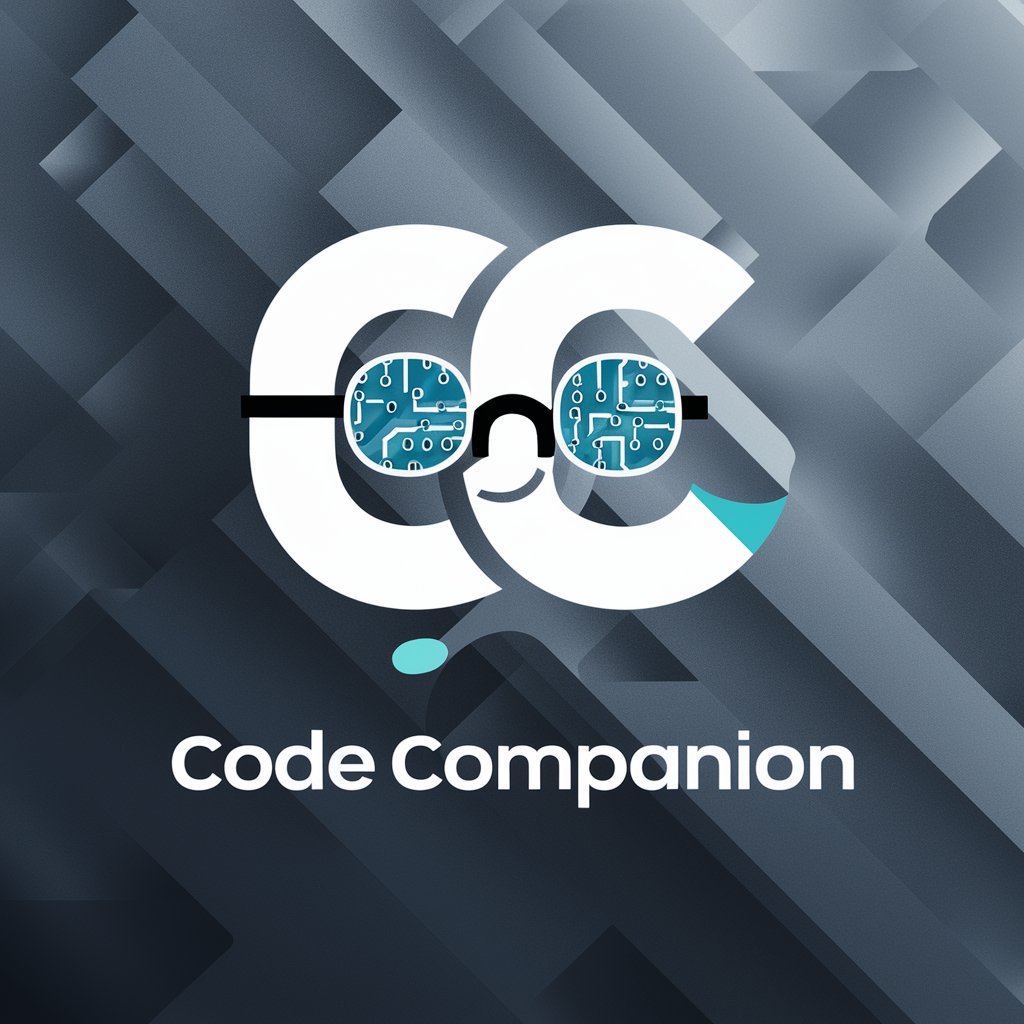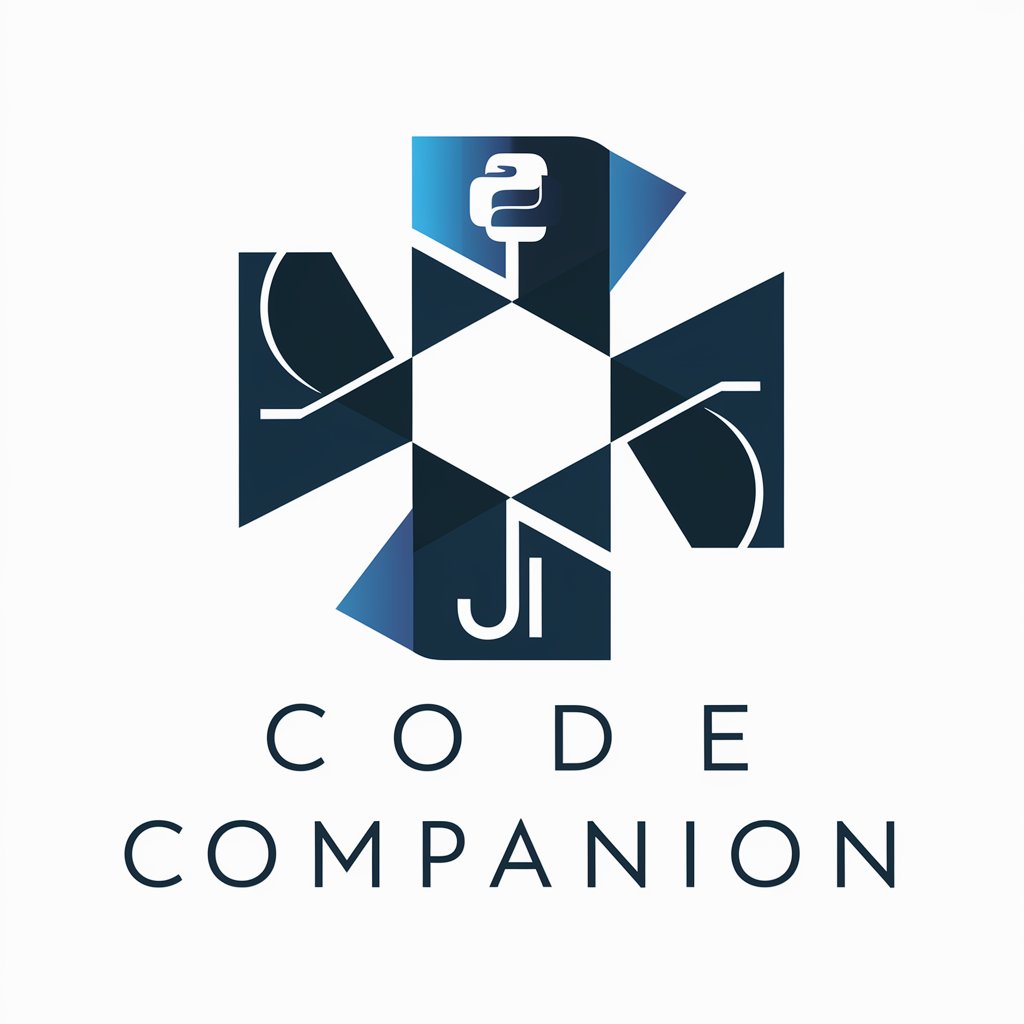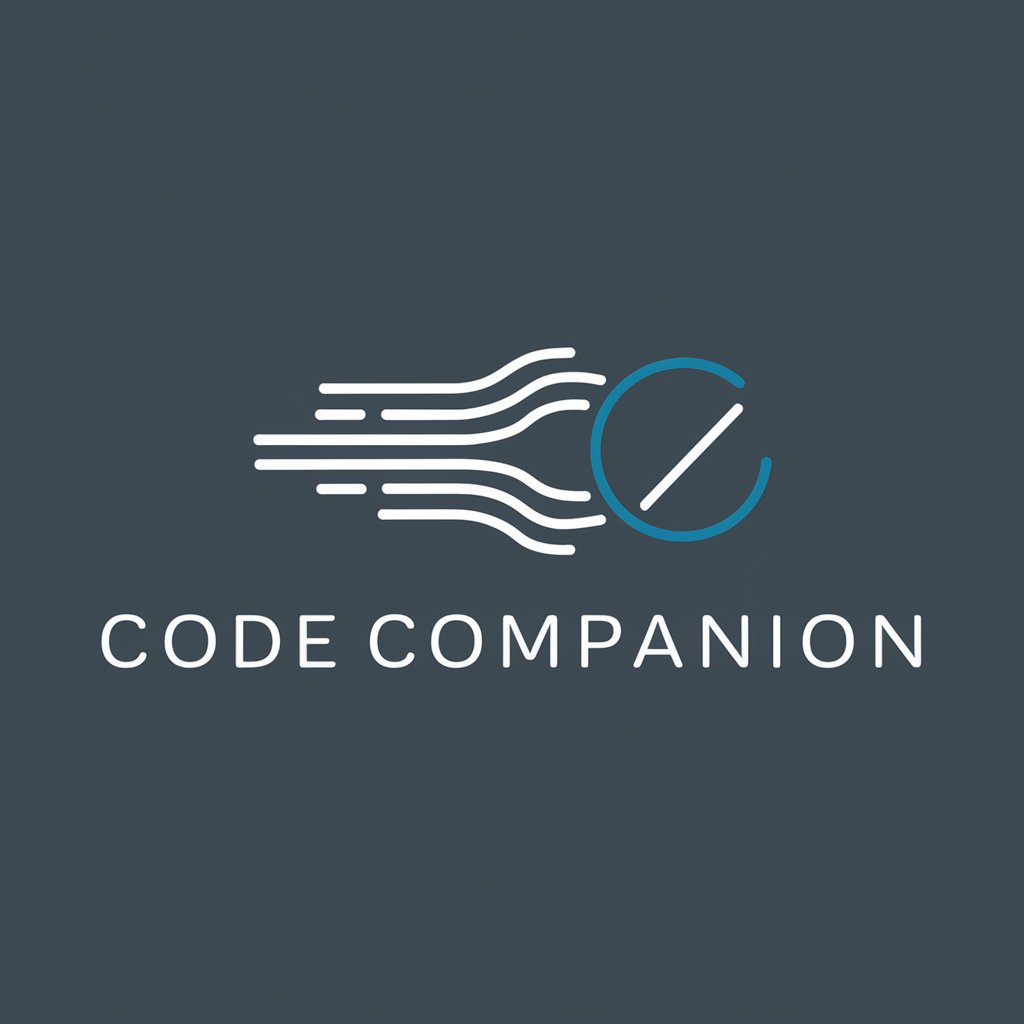
Code Companion - Python Programming Assistant

Hello! How can I assist you with your Python project today?
Empowering your code with AI
How can I use Python to automate...
What's the best way to analyze data with Python...
Can you help me create a web application using...
I need advice on debugging a Python script that...
Get Embed Code
Introduction to Code Companion
Code Companion is a specialized GPT tailored for Python developers, offering assistance in transforming abstract concepts into practical Python code. It is designed to bridge the gap between conceptual ideas and their implementation in code, making it a valuable resource for a wide range of Python-related tasks. From data analysis and web development to automation scripts and more, Code Companion provides code snippets, algorithms, and coding advice without executing or testing the code itself. This approach ensures a focus on teaching and guidance, enabling users to learn and apply Python coding principles in various scenarios. For example, a user might come with a requirement to scrape data from websites; Code Companion would then offer guidance on using libraries like Beautiful Soup or Scrapy, including code examples and best practices. Powered by ChatGPT-4o。

Main Functions of Code Companion
Data Analysis
Example
Guidance on using pandas for data manipulation and matplotlib for data visualization.
Scenario
A user needs to analyze a dataset of sales figures to identify trends. Code Companion provides examples on how to use pandas to clean and filter the dataset, and matplotlib to create graphs that highlight these trends.
Web Development
Example
Tips on Flask or Django for building web applications.
Scenario
A developer is creating a web application to display real-time stock market data. Code Companion suggests using Flask for a lightweight approach or Django for more complex applications, including code snippets for setting up routes and views.
Automation Scripts
Example
Creating scripts using Python for file management, web browsing automation, or email sending.
Scenario
A user wants to automate the process of organizing files in their computer. Code Companion offers advice on using Python's os and shutil libraries for file operations, including example scripts for sorting files into directories based on file type.
Machine Learning
Example
Implementing machine learning models with scikit-learn or TensorFlow.
Scenario
An aspiring data scientist needs to build a predictive model for housing prices. Code Companion explains the process of using scikit-learn to create a regression model, providing code examples for data preprocessing, model training, and prediction.
Ideal Users of Code Companion Services
Beginner Python Developers
Individuals new to programming who are learning Python. They benefit from Code Companion's step-by-step guidance, code examples, and explanations of programming concepts, which help them build a solid foundation in Python coding.
Experienced Developers
Seasoned programmers looking to expand their Python skills into new areas such as web development, data science, or automation. Code Companion offers advanced tips, best practices, and industry-standard approaches.
Data Scientists and Analysts
Professionals who use Python for data analysis or machine learning projects. They gain from Code Companion's expertise in libraries like pandas, numpy, matplotlib, scikit-learn, and TensorFlow, enhancing their data manipulation and modeling capabilities.
Educators and Trainers
Teachers and trainers can use Code Companion as a resource to provide examples, exercises, and coding challenges to students. This helps in creating an interactive learning environment that encourages practical application of Python.

How to Use Code Companion
1
Start by visiting yeschat.ai for a complimentary trial, accessible without a login or a subscription to ChatGPT Plus.
2
Identify your programming challenge or the area where you need assistance, whether it be data analysis, web development, or writing automation scripts.
3
Engage with Code Companion by clearly describing your coding problem or the concept you need help with. The more specific you are, the better the assistance.
4
Use the generated Python code snippets or advice in your project. Code Companion can provide explanations for the code it generates, helping you understand the solution.
5
For optimal experience, regularly review and test the provided code within your development environment. This ensures the solutions meet your requirements and function correctly.
Try other advanced and practical GPTs
Sponsorship Sage
Empowering Your Sponsorship Journey with AI

Nexty
Empowering Next.js Development with AI

PODER JUDICIAL ⚖️
Revolutionizing Family Law with AI

Advice
Empowering decisions with AI-driven advice

Charismatic Counselor
Empowering conversations, AI-powered support.

Signs
Crafting Visual Stories, Powered by AI

AFH Advisor Pro
Empowering Care Through AI

Creative Director
Elevate Your Creativity with AI

Digital Marketing Mentor
Empowering Your Digital Marketing Journey with AI

Projeto de Mestrado
Empowering Master's Projects with AI

f
Empowering fitness apps with AI innovation

Garden Hoses
Empowering Your Green Thumb with AI

Frequently Asked Questions about Code Companion
What programming languages does Code Companion support?
Code Companion primarily focuses on Python, offering assistance in various applications such as data analysis, web development, and automation scripts.
Can Code Companion help with debugging?
Yes, Code Companion can help identify common errors in your Python code and suggest corrections, but it is essential to manually review and test these suggestions.
Is Code Companion suitable for beginners?
Absolutely, Code Companion is designed to be user-friendly for beginners, providing clear explanations and code snippets that help learners understand Python programming concepts.
How does Code Companion handle complex coding projects?
For complex projects, Code Companion can break down the problem into smaller, manageable parts, offering code solutions and advice for each segment to ensure comprehensive support.
Can I use Code Companion for academic purposes?
Yes, Code Companion can be a valuable resource for students and researchers, aiding in the automation of data analysis, simplifying complex calculations, and helping with academic projects.





